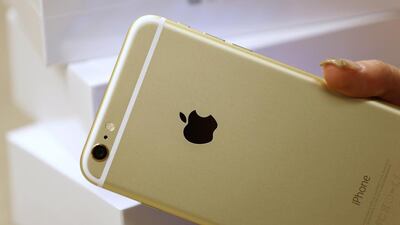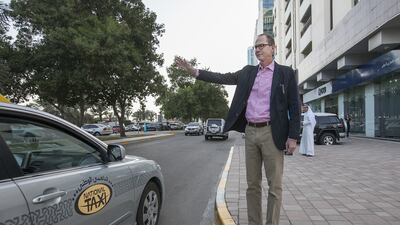A wide variety of topics have have been covered during the past seven days, from aviation to football, interest rates to commuting costs.
A tale of East and West in phone wars
Samsung sold an estimated 81 million smartphones in the first three months of this year. Apple, 61 million. But it is the high end of the market where the most money is to be made, and despite Samsung's overall advantage, Apple had enthusiasts/suckers lining up to buy its new and bigger iPhone all through the first quarter. Many of them were no doubt switching from Samsung's Galaxy models. Bottom line: Apple made a profit of $13.6 billion during the quarter and has a stock market value of about $741bn. Samsung raked in US$4.3bn and is worth about $193bn. There is also a factor of geography here. The western company is ahead of the Asian company. But what is propelling the western company is its sales to China, the colossus of the east. In the first quarter, for the first time, Apple peddled more iPhones in China than it did in America. Rob McKenzie
England should treasure Emirates FA Cup
The Emirates FA Cup. It just rolls off the tongue. The Dubai carrier yesterday confirmed that it is in talks with the English Football Association to sponsor the world's oldest football competition. A three-year deal worth £10 million (Dh56.5m) a year is expected to be approved. This means the airline will be an English club shirt sponsor (Arsenal), a stadium sponsor (Arsenal's Emirates Stadium) and will have the naming rights to what used to be regarded as the world's most famous cup competition (usurped by the Champions League). However, the moaning and groaning has already started among the country's footballing purists - those who insist the FA is repeatedly selling its soul by allowing the 144-year-old competition to be sponsored. There is an argument that the foreign money pumped into the English Premier League has diluted the quality of its domestic players as clubs invest in global talent rather than local. But for a nation that needs to finance a complete overhaul of its grass roots set-up, it should be glad to have Emirates on board. Ian Oxborrow
The A380 is due some love
The celebrations to mark the 10th anniversary of the A380 superjumbo were rather muted. This wasn't surprising given that Airbus failed to sell a single aircraft last year. Even its transatlantic rival Boeing did not find any takers for the competing 747. Does this mean that the A380 is doomed? Not necessarily. The Dubai-based Emirates, the single largest operator of the aircraft with currently 60 in its fleet, is keen to buy at least 200 more, but only if Airbus revamps the aircraft's engine with the promise of double-digit fuel efficiency. That Emirates is serious about its intentions can be put down to the fact that the airline's executives have repeatedly stated their stance on more than one occasion in the recent past. However, Airbus officials insist that such an upgrade will not be made on the request of only one airline. It would be a shame to see the aircraft consigned to history. On a more positive note, Airbus said today it would break even on the A380 as planned this year. Srinivasan Iyer
Watch the US economy glow in summer warmth
Central bankers do nothing by halves that can be done by quarters. Because when they do act, their heft shakes the ground around them. It's like a Bruce Banner/Hulk thing - use with caution. And caution is their default. The US central bank, the Federal Reserve, on Wednesday hedged its bets. The Fed's policy committee met on Tuesday and Wednesday and, in the end, decided to delay any move on super-low interest rates. They will wait and watch. Their words indicated that rates will not rise until the year's second half, at the earliest. Statistics released earlier Wednesday showed US growth was at a puny annual rate of 0.2 per cent. Part of the reason: tough winter weather kept shoppers, and their wallets, at home. But the same thing happened in last year's first quarter, and once the snow melted, the economy warmed up. (And so another movie reference: There will be growth in the spring.) Rob McKenzie
Driving up commuting costs
The cost of travelling to work has almost doubled during the past five years, we reported in our personal finance section this week. Research by global workplace provider Regus said UAE workers now spend on average 5 per cent of their pay annually - up from 3 per cent in 2010. This may initially sound like an alarming increase and see UAE residents frantically dusting off their cycling gear, especially against the backdrop of rising rents and utility bills amid Abu Dhabi's highest level of inflation since 2009. But let's not forget that travelling costs in this country - certainly to expats from western nations - are comparatively cheap. So, for now, don't expect too many complaints about the cost of travel, especially from anyone who has commuted somewhere such as London where up to 25 per cent or more of your wage can be spent on travel. Ian Oxborrow





